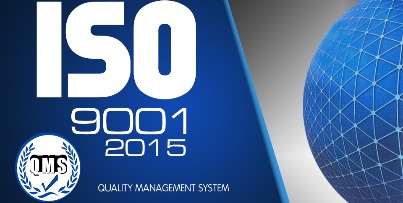
How ISO Certification helpful for Tourism Industries?
ISO Certifications, which are internationally recognised, are beneficial to practically every industry on the planet. The tourist industry is one of the most important sectors that contributes significantly to the country's economic development. Tourism is thought to be a major cash generator for any country's economy. As a result, there has been an immediate increase in demand for sustaining the tourism industry's quality and efficiency in recent times. The role of ISO Certification in the tourism industry is to assist your tourism business in providing the highest quality products or services to your tourists or visitors. ISO certification for the tourism industry is also very effective in meeting the needs and demands of visitors.
ISO Certifications offer the greatest potential for delivering high-quality products or services to the tourism industry, resulting in massive earnings for the company. ISO Certifications help to improve your company's reputation by demonstrating that you are committed to meeting internationally recognised quality standards. As a result, ISO certifications are extremely beneficial to the tourism business.
Why do the Tourism Industries need ISO Certification?
ISO Certifications are internationally recognised standards that must be met by the tourist industry in order for it to emerge as a highly efficient and effective management system. Tourism sectors are those that are exposed to a high level of risk, such as terrorism, conflict, or political unrest. As a result, there is considerable worry about the quality and security of tourism services. The tourism business may demonstrate its efficacy and efficiency in meeting the required standard for tourists and visitors with the help of ISO Certification.
The tourism industry's absolute necessity for ISO Certifications may be seen at every stage of their services. Following are some factors to consider in this regard:
- More methodical service delivery, enhancing your reputation and assisting you in attracting new tourists or visitors as well as retaining existing tourists or visitors.
- Take the appropriate steps to mitigate the effects of workplace incidents.
- Recognizing and controlling your company's existing and future risks.
- ISO certification applies to practically all forms of tourism businesses, regardless of size, type, or method.
Which standards or ISO certificates are required for the Tourism Industries?
The International Organization for Standardization (ISO) develops standards that aid in the implementation of systematised management systems for the delivery of quality assured products and services, as well as enabling compliance with the relevant standard.
ISO 9001, ISO 14001, ISO 45001, and ISO 50001 are the most prevalent ISO standards for all types of tourism Industries. However, ISO 50001certification is the most significant and required ISO standard for the tourism Industries.
Let's have a look at these ISO standards in more detail:
ISO 9001 Standard
ISO 9001 is a global standard that establishes a framework for establishing Quality Management Systems (QMS) in businesses. As a result, ISO 9001 assures that the quality of your products or services fulfils client expectations, which is extremely advantageous to the prosperity of your country.
ISO 14001 Standard
By providing the basis for the construction of Environmental Management Systems, the internationally renowned ISO 14001 standard assists you in enhancing your contact with the environment (EMS). It also aids you in resource management and waste reduction in order to make your activities more environmentally friendly.

ISO 45001 Standard
The global standard ISO 45001 provides a framework for building an occupational health and safety management system (OHSMS) in your company. This protects both your employees and your visitors from work-related injuries.

ISO 50001 Standard
The international standard for energy management systems, ISO 50001 Certification, is a requirement. This ISO standard for the railway industry can help you enhance your overall energy management while also lowering your costs and operational expenses.
Benefits of ISO certification for Tourism Industries Industry
ISO Certifications are valuable to practically every industry in the world of business. The railway industry is viewed as a vital component of economic trade integration. The need for high-quality, long-lasting railway services or products is growing by the day. ISO Certifications aid in the development of a standardised management system for the delivery of quality-based operations in your firm. ISO/TS 22163 Certifications have the greatest potential for delivering quality-assured products or services to railway-related businesses, resulting in massive earnings for the organisation.
The following are some of the advantages of ISO certification for the automotive industry:
- ISO/TS 22163 certification is an international standard for the railway industry that is extremely beneficial to your business since it examines and identifies all of the hazards associated with your processes and then finds a solution to reduce them.
- ISO certifications aid in the preservation of environmental, health, and safety measures, as well as the reduction of work-related risks and environmental dangers.
- ISO certifications for the railway industry aim to lay the groundwork for the effective and efficient transportation of goods and services, with a focus on energy efficiency and cost management.
- ISO Certifications for the railway industry eliminate the need for process rebuilding, resulting in cost savings in your industry.
ISO Certification process for Tourism Industries
- Application & contract
- Audit team Assignment
- Document view
- Certification Audit Independent review
- Notification of Certification
- Surveillance audit
- Re-Assessment
The certification process goes further. click here to view the next steps to ISO certification Process








